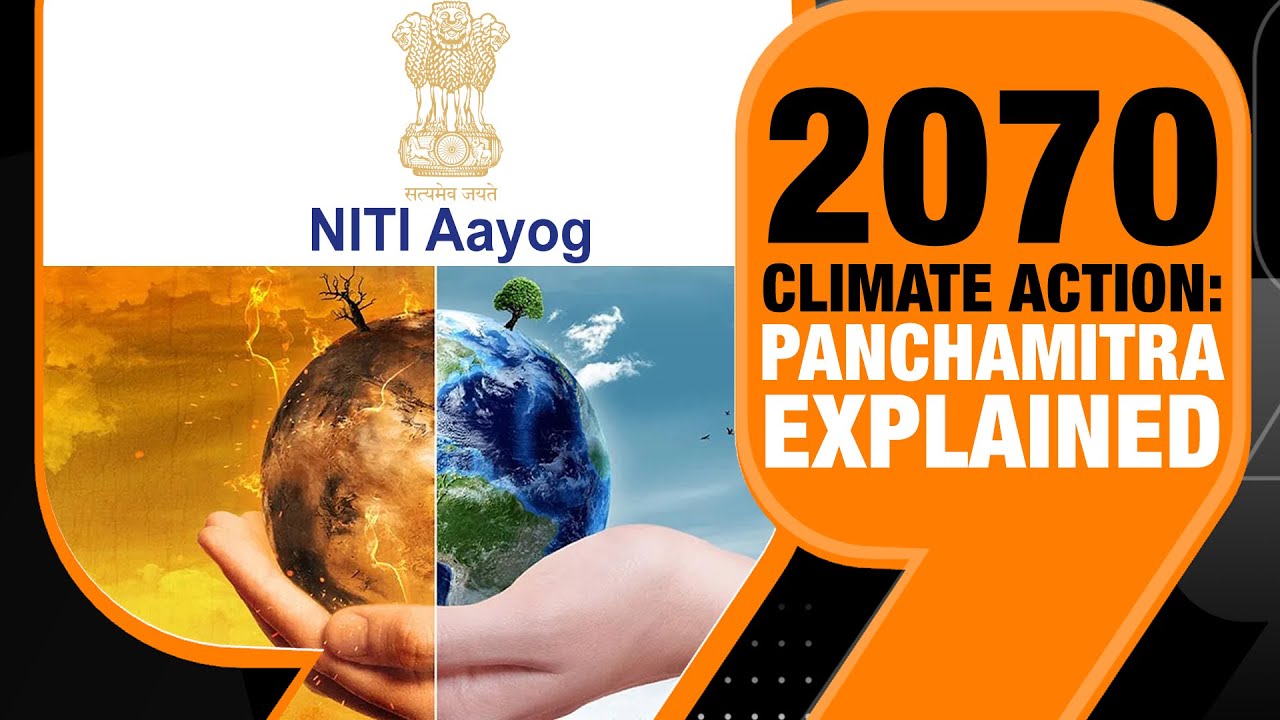
Three years after India set its ambitious goal to become a net-zero economy by 2070, the country’s strategy is taking shape. The NITI Aayog has formed multi-sectoral committees to chart out the transition plan. But what does this mean for India and its citizens?
Back in 2021, at COP26 in Glasgow, Prime Minister Narendra Modi announced India’s commitment to achieving net-zero emissions by 2070, joining nations like the U.S, U.K and China. This announcement included the ‘Panchamitra’ climate action plan, which consisted of five key targets:
50% Renewable Energy by 2030 i.e half of India’s electric power capacity will come from non-fossil sources.
Cut the carbon intensity of GDP by 45% by 2030, compared to 2005 levels.
Create an additional carbon sink of 2.5 to 3 billion tonnes of carbon dioxide equivalent through more forest and tree cover by 2030.
Promote a mass movement called ‘Lifestyle for Environment’.
Achieve a long-term goal of reaching net zero by 2070.
So, how is India planning to meet these ambitious targets?
In April, NITI Aayog released a memorandum detailing the formation of working groups focused on various aspects of climate change. These groups included experts from government, finance, industry and academia. Their main task was to identify issues, develop pathways and suggest policies to help India meet its climate goals.
These working groups are looking at six key areas –
First, macroeconomic implications of transition – Chaired by Arvind Virmani and participants from several key ministries and economic institutions, this group will analyze the transition that affect GDP, employment and tax revenues.
Next is climate finance – Chaired by Suman Bery, including representatives from the Ministry of Finance and major international financing agencies, this group will work on India’s funding needs.
Critical minerals and research and development, domestic manufacturing and supply chains for essential minerals.
Social aspects of energy transition that will analyse the affect on communities and jobs and the policies needed to support people.
Bringing together insights from all working groups to create cohesive policies.
Sectoral Working Groups that will focus on specific sectors like power, industry, buildings, agriculture and transport, to ensure green transitions in each area.
Reports from these groups will be compiled by NITI Aayog into a comprehensive policy handbook, due by October 2024.
India’s journey to net-zero is complex and will require coordinated efforts across all sectors. But with these dedicated working groups and a clear action plan, the country is taking major steps toward a sustainable future. So, the big question remains – are we ready to support and participate in this transformative journey to make our planet a better place to live in?
………………………………………………………………………………….
News9 is India’s first fully integrated English news brand across all digital platforms. It includes a publishing platform, viz. www.news9live.com, a future-ready OTT platform, News9 Plus, and a 24-Hour video streaming service on connected TVs and all social platforms.
It’s the English news brand that understands and fits perfectly into the digital-first lifestyles of our English news audiences.
► News9 Plus App : https://onelink.to/8pwfkc
► News9 OTT Coupons : https://bit.ly/4dwLDx4
► Watch us on YouTube : https://www.youtube.com/c/NEWS9LIVE
► Like us on Facebook : https://www.facebook.com/news9live
► Follow us on Instagram : https://www.instagram.com/news9live
► Follow us on Twitter : https://twitter.com/NEWS9TWEETS
source






